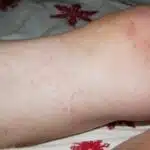Laundry detergent is an essential household item that we use daily to keep our clothes clean and fresh. However, store-bought detergents are often loaded with chemicals that can be harmful to both the environment and our health. Making your own laundry detergent is a cost-effective and environmentally friendly alternative that can also save you money in the long run.
As a DIY laundry detergent expert, I have experimented with various recipes over the years and have found the perfect blend for a homemade laundry detergent that is effective, safe, and easy to make. In this article, I will share my recipe with you along with some tips on how to customize it according to your preferences. By making your own laundry detergent, not only will you be serving yourself by using a natural alternative but you will also be serving others by reducing your carbon footprint.
Benefits Of Making Your Own Laundry Detergent
Making your own laundry detergent can have numerous benefits, both for you and the environment. By creating your own detergent, you can save a considerable amount of money compared to store-bought options. Cost comparison studies show that homemade laundry detergent can cost up to 50% less per load than its commercial counterpart. This means that not only are you saving money in the long run, but you’re also able to stretch your budget further.
In addition to saving money, making your own laundry detergent also has a positive impact on the environment. Many store-bought detergents contain harsh chemicals that can be harmful to aquatic life and ecosystems. Homemade detergents often use natural ingredients that are safe for the environment, reducing your carbon footprint in the process. You’ll also avoid contributing to plastic waste by eliminating the need for plastic packaging.
Understanding the ingredients: what you need is an essential step in making your own laundry detergent. By knowing what goes into it, you’ll be better equipped to customize your recipe based on your preferences and needs. In the next section, we’ll explore some common ingredients used in homemade laundry detergents and their unique properties.
Understanding The Ingredients: What You Need
The success of any DIY laundry detergent recipe hinges on the availability and quality of its ingredients. For your homemade laundry detergent, you’ll need to source washing soda, borax, and bar soap. These ingredients can be found in most grocery stores or online markets that specialize in natural cleaning products. If you’re unable to find them locally, try purchasing from a reputable supplier like Amazon or Etsy.
For those who prefer to avoid certain chemicals, there are alternative ingredients that can be used instead of traditional ones. Baking soda is a suitable replacement for washing soda as it has similar properties and is readily available in most households. Similarly, castile soap or another natural soap can replace the bar soap if you prefer a more eco-friendly option. Do some research beforehand to ensure that any alternative ingredients used will not negatively affect the cleaning power of your laundry detergent.
Knowing where to source your ingredients is just as important as knowing which ingredients to use. It’s always best to purchase from reputable sources and read reviews before making a purchase. Additionally, consider buying in bulk if you plan on making this homemade laundry detergent recipe multiple times. This not only saves money but also ensures that you have enough ingredients on hand for future batches.
Moving onto equipment and supplies: what you’ll use…
Equipment And Supplies: What You’ll Use
Equipment needed for making homemade laundry detergent includes mixing bowls, measuring cups, a grater, and a funnel. Supplies for making homemade laundry detergent are baking soda, washing soda, Borax, liquid soap, essential oils, salt, citric acid, and bar soap. Measuring cups are used to accurately measure the amount of each ingredient used in the homemade laundry detergent recipe. Bowls are used to mix together all of the ingredients, and a grater can be used to grate bar soap into smaller pieces.
Equipment
As a DIY laundry detergent expert, I understand the importance of having the essential equipment to make your own homemade laundry detergent. Having the right tools can make all the difference in creating a product that is effective and long-lasting. Some of the essential equipment you’ll need include a large mixing bowl, a grater, and a container for storage. With these items on hand, you’ll be able to create your own detergent with ease.
Proper measurements are also crucial when it comes to making your own laundry detergent. It’s important to measure out each ingredient carefully to ensure that your detergent is both effective and safe for use. Using too much of one ingredient or not enough of another can result in an inferior product that doesn’t get clothes as clean as it should. As an expert in DIY laundry detergents, I always stress the importance of following recipes closely and measuring out ingredients accurately.
In conclusion, having the right equipment and taking proper measurements are key aspects when making homemade laundry detergents. By following these guidelines carefully, you’ll be able to create a product that is both effective and cost-efficient. So if you’re looking for a way to take control over your cleaning routine while serving others by reducing waste and harmful chemicals in our environment, then making your own laundry detergent is definitely worth considering!
Supplies
As a DIY laundry detergent expert, I understand the importance of having the right supplies when making your own laundry detergent. The ingredients you use can greatly affect the effectiveness and safety of your detergent. It’s important to choose high-quality ingredients that are safe for use on clothes and won’t harm the environment. Some of the most common ingredients used in homemade laundry detergents include washing soda, borax, and castile soap.
When it comes to recipe variations, there are many different options to choose from. Some recipes may call for additional ingredients such as essential oils or baking soda, while others may require specific measurements or mixing methods. As an expert in DIY laundry detergents, I always recommend starting with a basic recipe and experimenting with variations over time to find what works best for you.
In addition to choosing high-quality ingredients and experimenting with recipe variations, it’s also important to properly store your homemade laundry detergent. Airtight containers such as mason jars or plastic bins are ideal for keeping your detergent fresh and preventing moisture from seeping in. By following these guidelines carefully and using quality supplies, you’ll be able to create a homemade laundry detergent that is effective, safe, and environmentally friendly.
Step-By-Step Instructions For Making Your Detergent
Now that you have all the equipment and supplies needed, it’s time to move on to the next step: making your own detergent. First, let’s talk about ingredients alternatives. The basic ingredients for homemade laundry detergent are washing soda, borax, and soap flakes. However, if you can’t find these ingredients in your local store or prefer a different scent, there are alternatives you can use. For example, instead of soap flakes, you can grate a bar of soap or use liquid castile soap. You can also add essential oils for fragrance.
When making your detergent, it’s important to follow the instructions carefully to avoid common issues such as clumping or separation of ingredients. One tip is to mix the dry ingredients first before adding any liquids. Also, make sure to use hot water when mixing everything together as it helps dissolve the ingredients better. If your mixture turns out too thick or thin, adjust the amount of water accordingly until you get your desired consistency.
In addition to troubleshooting common issues during the process of making your detergent, it’s also important to know how to store it properly. To prevent clumping or hardening over time, store your homemade detergent in an airtight container away from moisture and heat sources such as direct sunlight or radiators. You can also add a small amount of rice into the container as a moisture absorber. With these tips in mind, you’re ready to make and store your own homemade laundry detergent!
As you now know how to make your own laundry detergent and store it properly using our tips above, there are still a few things you should keep in mind when using it for washing clothes. Our next section will discuss some additional tips for using DIY laundry detergent effectively and safely without damaging delicate fabrics or causing skin irritation.
Tips For Storing Your Homemade Detergent
Although homemade laundry detergent is an excellent way to save money and reduce environmental waste, it is crucial to store it properly. Proper storage is critical because improper storage can lead to the degradation of the detergent’s quality, rendering it ineffective. Thus, optimal storage conditions should be followed to ensure the longevity of your homemade detergent.
The shelf life of homemade laundry detergents is typically shorter than commercial detergents. As a result, it is essential to make sure that your detergent remains fresh for as long as possible. The best way to do this is by storing it in an airtight container or jar away from heat and moisture. A cool, dry place like a pantry or cupboard would be ideal for storing your homemade laundry detergent.
Aside from storing your laundry detergent correctly, you must also keep track of its shelf life. Typically, homemade laundry detergents have a shelf life of six months to one year. However, this may vary based on ingredients and how well it is stored. To determine if your detergent has gone bad, look out for any signs like clumping or a foul smell. If you notice any changes in texture or scent, it may be time to make a new batch.
Properly storing your homemade laundry detergent will help maintain its effectiveness and longevity while reducing environmental waste and saving you money. Now that we know how important optimal storage conditions are let’s move on to the next section: how much detergent to use per load.
How Much Detergent To Use Per Load
Proper measurement of laundry detergent is crucial in achieving the best results. Using too much detergent can result in excessive suds and residue buildup on your clothes, while using too little may leave your clothes dirty and dingy-looking. Therefore, it’s important to use the right amount of detergent per load based on the size of your washer and the level of soil on your clothes.
The general rule for proper measurement is to use one tablespoon of laundry detergent per regular-sized load. However, this may vary depending on the type and concentration of detergent you’re using. Some detergents require less or more than a tablespoon, so it’s best to check the manufacturer’s instructions for specific guidelines.
Benefits of proper measurement go beyond cleaning efficiency; it also saves you money by reducing waste and prolongs the life of your washing machine by preventing soap buildup in its inner workings. So, take time to measure out your detergent before each wash cycle, and adjust accordingly based on how dirty your clothes are. By doing so, you’ll achieve cleaner, fresher-smelling clothes while saving money and protecting your washing machine from damage.
Now that you know how much detergent to use per load let’s talk about scenting your detergent with essential oils. Adding essential oils to DIY laundry detergents can give them a pleasant fragrance that lasts longer than store-bought fragrances. So next up, we’ll show you how to add essential oils to your homemade laundry detergents for an added touch of freshness!
Scenting Your Detergent With Essential Oils
Symbolism is a powerful tool that can be used to evoke emotions and create a connection with the audience. Essential oils are like the cherry on top of the sundae when it comes to making your own laundry detergent. They add a beautiful scent that can make your clothes smell fresh and clean, and they offer therapeutic benefits too. It’s time to dive into the world of essential oil blends and choose the right scent for your homemade laundry detergent.
Choosing the right essential oil blend for your laundry detergent depends on personal preference and mood. For instance, if you want a calming effect, lavender or chamomile essential oil blends would work well. On the other hand, if you’re looking for an energizing scent, citrus-based essential oil blends like grapefruit or lemon can provide that extra boost. Below is a table showing various essential oils and their unique properties.
| Essential Oil | Properties | Scent |
|---|---|---|
| Lavender | Calming, relaxing | Floral |
| Lemon | Energizing, uplifting | Citrus |
| Tea Tree | Antibacterial, antifungal | Medicinal |
| Peppermint | Cooling, invigorating | Minty |
When adding essential oils to your homemade laundry detergent recipe, it’s important to use caution as they are highly concentrated. A general rule of thumb is to use about 10-20 drops per load of laundry. You can add them directly to your detergent mix or put a few drops on a wool dryer ball before starting the cycle.
Using essential oils in your homemade laundry detergent not only makes it smell amazing but also offers therapeutic benefits that can enhance your overall well-being. In addition to these benefits, sometimes tough stains require additives for extra cleaning power. Let’s explore some options in our next section.
Using Additives For Tough Stains
Additive options can be a game changer when it comes to battling tough stains on your laundry. While homemade laundry detergent is great for everyday use, sometimes you need a little extra help to get rid of stubborn stains. Here are some additives that you can add to your homemade laundry detergent recipe:
- Borax: This natural mineral has been used for laundry purposes for over a century. It helps soften water and enhances the cleaning power of soap, making it easier to remove tough stains.
- Baking soda: Similar to borax, baking soda helps soften water and boost the cleaning power of your detergent. It also helps eliminate odors from clothes, leaving them smelling fresh and clean.
- Oxygen bleach: Unlike traditional chlorine bleach, oxygen bleach is safe for most fabrics and colors. It breaks down tough stains by releasing oxygen molecules when mixed with water.
Pre treating techniques can also make a big difference in removing tough stains. Before washing your clothes, try these methods:
- Soak the stained area in vinegar or lemon juice before washing. These natural acids help break down the stain and make it easier to wash away.
- Apply a pre-treatment product directly onto the stained area before washing. Look for products that contain enzymes or other stain-fighting ingredients.
- Use a toothbrush or scrub brush to gently work the pre-treatment product into the stained area.
By using additives and pre-treating techniques, you can achieve cleaner clothes without having to resort to harsh chemicals or expensive stain removers.
Next up, we’ll discuss the differences between making liquid detergent vs. powder detergent and which one might be best suited for your needs.
Making Liquid Detergent Vs. Powder Detergent
Are you wondering whether to make liquid detergent or powder detergent? Each type has its pros and cons, and it’s up to you to decide which one suits your needs best. Liquid detergent is more convenient for pre-treating stains, dissolves better in cold water, and is easier to store in smaller spaces. However, it can be more expensive than powder detergent and may require more ingredients. On the other hand, powder detergent is cheaper, lasts longer, and is less likely to spill or leak. But it can leave residue on clothes if not dissolved properly.
When making homemade laundry detergent in bulk, consider trying both liquid and powder versions to see which one you prefer. You can also experiment with different scents by adding essential oils or fragrances to your recipe. Just be sure to research which scents are safe for use on clothing before adding them.
To help you choose between liquid and powder detergent, here’s a comparison table:
| Liquid Detergent | Powder Detergent | |
|---|---|---|
| Cost | More expensive | Cheaper |
| Storage | Takes up more space | Less likely to spill |
| Dissolves | Better in cold water | Can leave residue on clothes |
Now that you have a better idea of the differences between liquid and powder detergent, you can make an informed decision about which one fits your lifestyle best. In the next section, we’ll explore homemade fabric softener recipes that will complement your homemade laundry detergent perfectly.
Homemade Fabric Softener Recipes
For those who prefer a more natural approach to laundry care, homemade fabric softener is an excellent choice. Unlike commercial fabric softeners that contain harsh chemicals, DIY alternatives are gentle on your clothes and the environment. There are several recipes for making your own fabric softener, each with its unique benefits.
One popular method is adding vinegar to your washing machine’s rinse cycle. Vinegar acts as a natural fabric softener by breaking down the minerals in hard water that can make clothes stiff and scratchy. To use this method, add half a cup of white vinegar to the rinse cycle instead of commercial fabric softener. Another option is making DIY dryer sheets by soaking small pieces of cloth in a mixture of vinegar and essential oils such as lavender or lemon.
For those looking for an alternative to ironing, homemade wrinkle release spray is an excellent option. This DIY solution can help remove wrinkles from clothing without damaging delicate fabrics or leaving residue behind. To make your wrinkle release spray, combine one part liquid fabric softener with three parts water in a spray bottle. Shake well before use, then mist over wrinkled clothes before smoothing them out with your hands.
By using these DIY laundry hacks, you can save money while still achieving clean and fresh-smelling clothes. Plus, since you control the ingredients used in each recipe, you know exactly what’s going into your laundry routine. So why not give them a try? Your wallet (and the planet) will thank you.
Transition: Now that we’ve covered some great ways to take care of your laundry naturally, let’s move on to how to make your detergent last longer so that you can continue to enjoy its benefits for longer periods without having to replenish it frequently.
How To Make Your Detergent Last Longer
Ways to prolong the longevity of DIY detergent are essential to maximize the use of homemade detergent. Proper homemade detergent maintenance can make a significant difference in how long it lasts, and ultimately how much money you save. Here are some tips for making your detergent last longer:
Firstly, store your homemade detergent in an airtight container to prevent moisture from getting in. Moisture causes clumping and reduces the effectiveness of your detergent. It is best to store your DIY detergent away from heat and direct sunlight as well.
Secondly, measure out the amount of detergent that you need for each load carefully. Overuse of detergent can cause build-up on clothes and reduce the lifespan of your homemade laundry soap. Using too little can also result in clothing not being cleaned properly, resulting in having to rewash them – this wastes both time and resources.
Lastly, consider adding baking soda or vinegar to your wash cycle to help prolong the life of your DIY laundry soap. Baking soda helps soften hard water while vinegar acts as a natural fabric softener that also helps remove any lingering odors.
By taking these steps for making detergent last longer, you will be able to maximize the use of your DIY laundry soap and save money over time. Next, we’ll take a look at comparing the cost savings of homemade vs. store-bought detergents – which one is more cost-effective?
Comparing The Cost Savings Of Homemade Vs. Store-Bought Detergent
- The cost of ingredients for making homemade laundry detergent is generally cheaper than the cost of a store-bought detergent.
- The cost of production for homemade laundry detergent is also typically lower than the cost of production for store-bought detergent.
- In comparison to store-bought laundry detergent, the cost savings of making homemade laundry detergent can be substantial.
- However, it is important to consider the time and effort involved in making homemade laundry detergent, as this may offset any cost savings.
Cost Of Ingredients
When it comes to laundry detergent, cost comparison plays a big role in determining which one is the best option for your household. Store-bought detergents can be expensive, especially if you have a large family who produces a lot of laundry. In contrast, making your own homemade laundry detergent can be very affordable, depending on the ingredients you choose to use.
One of the biggest affordability factors when it comes to homemade detergent is the type of soap you use. For example, using bar soap instead of liquid soap can save you money. Additionally, purchasing ingredients in bulk can also reduce costs significantly. Another factor to consider is that homemade detergents typically require less product per load than store-bought detergents, meaning you’ll get more loads out of each batch of homemade detergent.
Overall, making your own laundry detergent can be much more cost-effective than purchasing store-bought options. While there may be some initial costs associated with purchasing ingredients and supplies, these will likely pay off in the long run as you continue to make your own detergent at home. Plus, knowing exactly what goes into your detergent allows for greater control over the quality and effectiveness of the product.
Cost Of Production
Now that we’ve discussed the cost comparison between homemade and store-bought laundry detergent, it’s time to take a look at the cost of production for making your own detergent. Calculating expenses is crucial in determining the cost effectiveness of homemade detergent. The main expenses for making your own laundry detergent are the ingredients and supplies needed to create the product.
When it comes to ingredients, there are many options available, and some may be more expensive than others. However, purchasing ingredients in bulk can significantly reduce costs per batch of detergent. Additionally, some ingredients can be found at a lower price point if purchased from wholesale suppliers or online retailers. When considering supplies, you will need containers for storage and mixing tools such as a large mixing bowl or blender.
Overall, while there may be initial costs associated with purchasing ingredients and supplies for making homemade laundry detergent, these expenses are minimal compared to the long-term savings. Making your own detergent allows for greater control over quality and effectiveness while also being mindful of cost efficiency. By calculating expenses and finding affordable ingredient options, making your own laundry detergent can be an excellent option for those looking to save money on household items without sacrificing effectiveness.
In conclusion, understanding the cost of production is an essential aspect when comparing the cost savings of homemade vs store-bought detergents. While there may be some upfront costs associated with buying ingredients and supplies needed to make your own laundry detergent, these costs pale in comparison to long-term savings. By incorporating cost-effective methods such as buying in bulk or finding affordable ingredient options, making your own laundry detergent can be an excellent way to save money without compromising on quality or effectiveness.
Environmental Benefits Of Homemade Detergent
Just like how a single drop of water can create a ripple effect, every decision we make has an environmental impact. Choosing to make your own laundry detergent is one way you can reduce your carbon footprint and promote sustainable living. Not only does it save money, but it also helps in reducing the amount of plastic waste that ends up in landfills.
When making your own laundry detergent, you have the freedom to choose natural ingredients that are eco-friendly and biodegradable. These ingredients include baking soda, washing soda, borax, and essential oils. Unlike store-bought detergents that contain harsh chemicals that can harm the environment, homemade detergents are gentle on fabrics and do not pollute our waterways.
By choosing to use natural laundry detergent, not only are you helping the environment but you’re also promoting health benefits for yourself and your family. Chemicals found in conventional detergents can cause skin irritation and allergic reactions. Natural alternatives eliminate these risks while still effectively cleaning clothes. Plus, the essential oils used in homemade detergents leave a pleasant scent on clothes without the need for artificial fragrances.
Transitioning from the environmental benefits of using homemade detergent to its health benefits is seamless as both go hand-in-hand. By prioritizing sustainability in our daily lives, we are also taking steps towards improving our overall well-being through conscious choices about what we use in our homes.
Health Benefits Of Using Natural Detergent
The benefits of natural detergent are numerous. Unlike chemical detergents, natural detergents are free of harsh chemicals that can irritate the skin or cause allergic reactions. They are also eco-friendly and biodegradable, making them a more sustainable option for those who want to reduce their carbon footprint.
In addition to being better for the environment, natural detergents also offer superior cleaning power. Many people find that they are able to get their clothes cleaner with natural detergents than they were with chemical ones. This is likely due to the fact that natural ingredients like baking soda and vinegar have been used for centuries as cleaning agents.
Despite these benefits, some people may be hesitant to try natural detergents because they assume that they will be more expensive than chemical ones. However, this is not necessarily true. While some natural detergents may cost more upfront, they typically last longer than their chemical counterparts, making them a cost-effective choice in the long run.
Moving on from discussing the benefits of using natural detergent, let’s now explore some frequently asked questions about homemade laundry detergent. These questions will help you understand how to make your own detergent at home and address any concerns you may have about the process or its effectiveness.
Frequently Asked Questions About Homemade Laundry Detergent
From the health benefits of using natural detergent, it is apparent that homemade laundry detergents are not only eco-friendly but also gentle on the skin. If you have decided to make your own homemade laundry detergent, congratulations! You are making a commendable effort towards being environmentally conscious and saving money. However, it is important to note that making homemade laundry detergent requires precision and attention to detail.
Common mistakes when making homemade laundry detergents include using too much or too little of an ingredient or failing to mix the ingredients thoroughly. These mistakes can result in ineffective detergents that can leave stains on clothes or fail to remove dirt and grime. Troubleshooting such problems requires patience and careful analysis of each step involved in making the detergent.
To avoid these common mistakes, follow the recipe instructions carefully, measure all ingredients accurately and be patient during the mixing process. Additionally, ensure that you use high-quality ingredients as low-quality products can also affect the effectiveness of your detergent. By avoiding these common mistakes, you can enjoy a successful experience with your homemade laundry detergent while keeping your clothes clean and safe for everyday wear.
Remember that making your own homemade laundry detergent is a fun and rewarding activity that can save you money while reducing environmental pollution. With proper care and attention to detail, you can make an effective yet affordable product using simple household ingredients. So go ahead and try out this satisfying DIY project today!
Conclusion
In conclusion, making your own homemade laundry detergent can be a cost-effective and eco-friendly alternative to store-bought varieties. By understanding the ingredients and equipment needed, following step-by-step instructions, and properly storing your detergent, you can create a natural and effective cleaning solution for your clothes.
For example, let’s say you have a family of four who does an average of eight loads of laundry per week. With store-bought detergent costing around $0.20 per load, that adds up to $6.40 per week or $332.80 per year. However, by making your own detergent for around $0.03 per load, you could save over $250 annually while also reducing the number of plastic containers being thrown away.
By choosing to make your own laundry detergent, not only are you saving money and reducing waste, but you are also avoiding harsh chemicals commonly found in store-bought detergents that can irritate skin and harm the environment. So why not give it a try? With these simple steps and tips, you too can become a DIY laundry detergent expert!
Image Credits
- “Cheer Laundry Detergent” by JeepersMedia (featured)

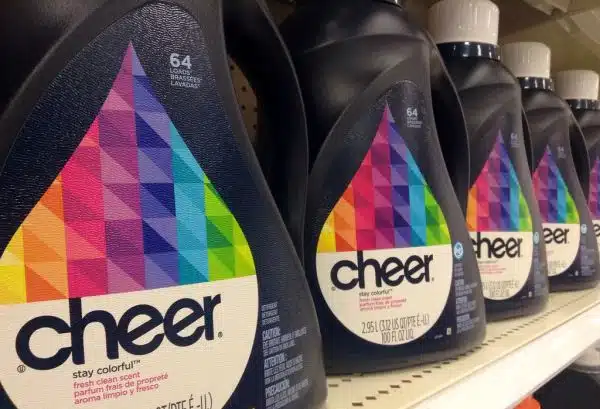
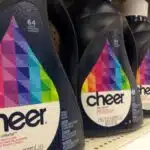
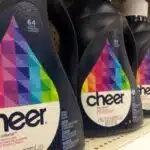






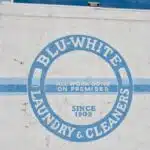

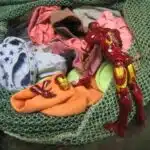
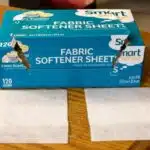
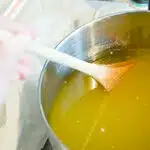
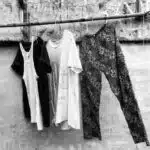
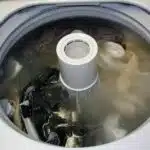
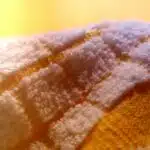
![How To Wash And Care For White Clothes 18 The only genuine borax soap cleanses hygienically saves the clothes and hands. 20 Mule-Team brand Boraxo white laundry soap [front]](https://green-life.blog/wp-content/uploads/2023/05/YDXLLCovnOjq-150x150.jpg.webp)
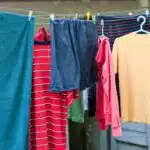
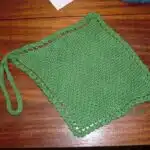


![How To Remove Perfume Odors From Clothes 23 For pungency, strength, durability and delicacy of odor. Read's Grand Duchess Cologne. [back]](https://green-life.blog/wp-content/uploads/2023/05/b-myfoHrx-jq-150x150.jpg.webp)

